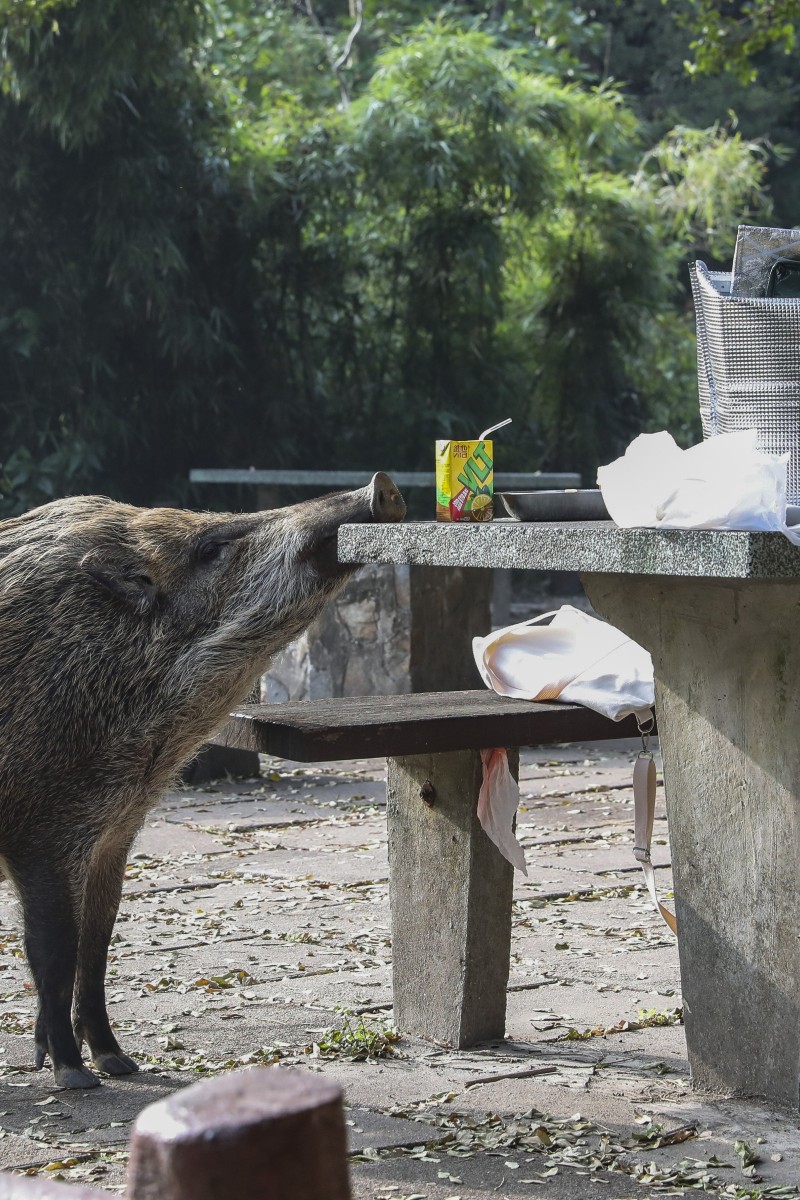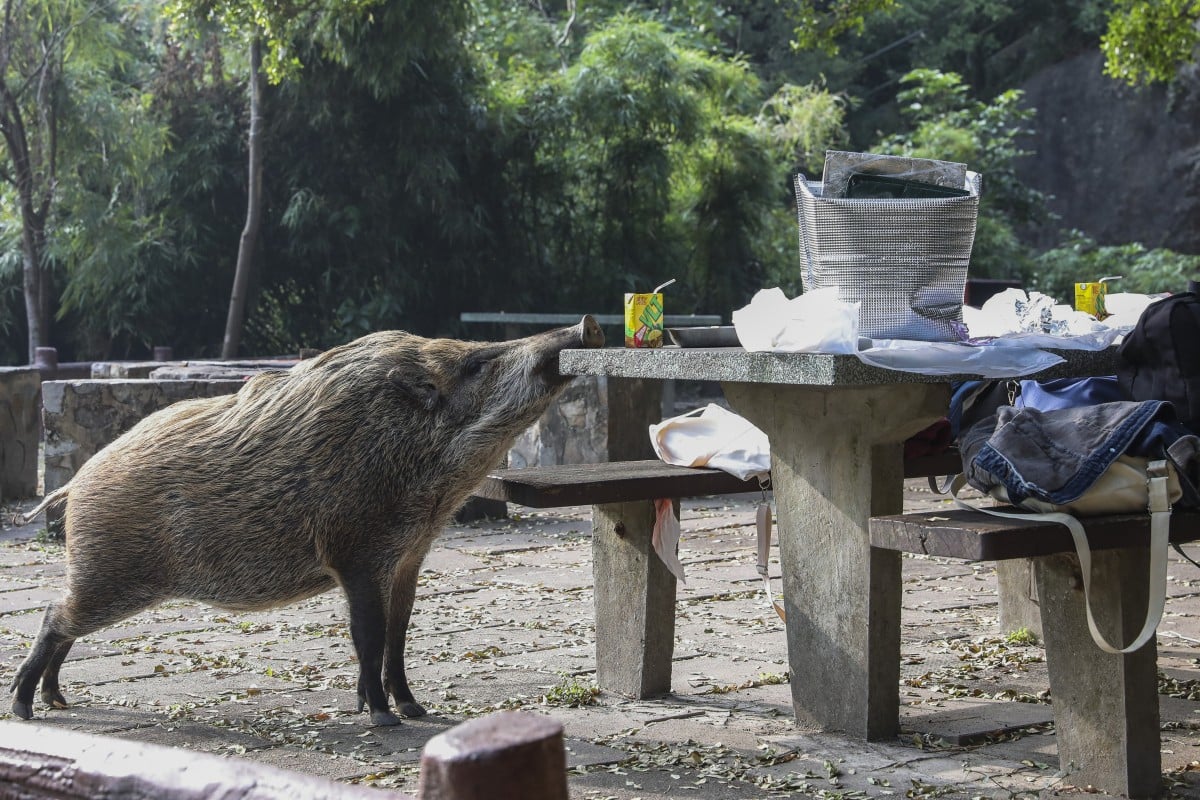
The Agriculture, Fisheries and Conservation Department promises to step up their fight against people who feed the city’s wild boars and other animals
 More than 160 wild boars were captured from January to March this year – a big jump on the 106 caught in all of 2017.
More than 160 wild boars were captured from January to March this year – a big jump on the 106 caught in all of 2017. Wildlife managers in Hong Kong are to step up their fight against people who illegally feed boars and other animals, having recorded 12 cases in the past month.
The Agriculture, Fisheries and Conservation Department (AFCD) said last Thursday that it conducted visits to areas with feeding bans such as country parks last month and saw a dozen cases of illegal feeding of wild animals, including pigs and monkeys.
“Feeding wild animals not only leads to the loss of their foraging instincts and changes their behaviour, but also poses a nuisance and environmental hygiene problems,” a spokesman said.
The number of wild boars caught in Hong Kong continues to rise. They also visit urban areas more often. Figures from the AFCD showed that 166 wild boars were captured from January to March this year – a big jump on the 106 caught in all of 2017.
While wild animal encounters have injured people in the past, illegal feeding has also harmed the animals.
Billy, an eight-year-old bull who lived on Pui O beach on Lantau Island, was found dead in November last year. Its stomach was blocked with enough plastic bags to fill two rubbish bins.
In recent years, its friendly meetings with tourists who visited the beach and the neighbouring campsite meant that it ended up eating their leftovers. It was also fed by visitors. “This led to a change in its habits for finding food … and made it [think] that plastic bags [were] food,” a statement from the AFCD said.
The problem of feral animals was also brought up in the Legislative Council in January this year, with Hong Kong’s Chief Executive Carrie Lam Cheng Yuet-ngor promising the department would solve the problem.
The team that manages the boars is going to grow, and have 20 more staff.
Edited by M. J. Premaratne
You might also like:
We need to take responsibility for our consumerism and how that impacts wildlife